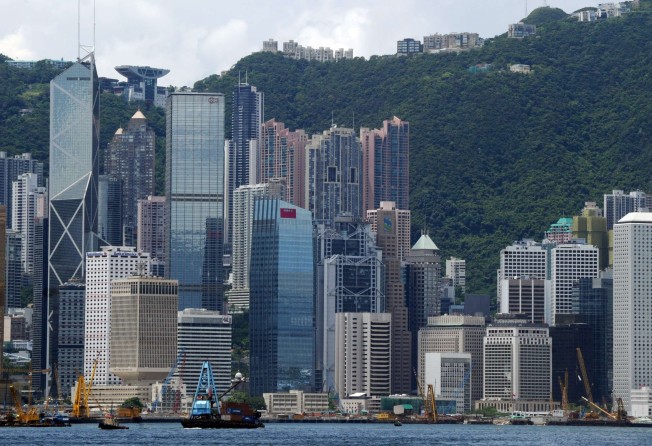World Bank group sees Hong Kong playing key role in emerging market infrastructure financing

The International Finance Corporation (IFC) has been seeking innovative ways to facilitate private involvement in infrastructure financing in emerging economies, with Hong Kong expected to play a key role in the initiative.
In the latest move the IFC has joined hands with Allianz, a German insurance company, which will invest US$500 million in IFC debt financing for infrastructure projects in emerging markets, Vivek Pathak, IFC’s director of East Asia and Pacific, said at the first executive workshop organised jointly by IFFO and IFC last week.
The IFFO refers to the Infrastructure Financing Facilitation Office established in July by the Hong Kong Monetary Authority to facilitate infrastructure investments and financing. It announced during the workshop that 13 more organisations would join its ranks, including top players such as AIA Group, Citi Group and Mizuho Bank.
Allianz is the first participant in an innovative programme called Managed Co-Lending Portfolio Programme (MCPP) for infrastructure financing, a loan-syndication initiative the IFC has launched to enable third-party investors to participate in IFC’s loan portfolio to access infrastructure projects in emerging markets. IFC originates, structures and administers the loans, and will also provide first loss protection.
In addition to Allianz, “we are also talking with other insurance companies,” said Pathak. “We expect to raise about US$3-$5 billion in the next few years through the programme.”
Hyun-Chan Cho, regional industry head of infrastructure and natural resources in Asia Pacific, IFC, said it aimed to raise a big pool of money. “When the IFC finds a bankable infrastructure projects, the money will be available for it.”
That’s different from what the IFC has been doing in the past, which means co-financing infrastructure with other banks on a “deal by deal” basis, according to Cho.
The bankable projects Cho refers to are those with sufficient collateral, future cash flow, and high probability of success, to be seen as acceptable to institutional lenders for financing.
Eastspring Investments, the Asian asset management business of British insurer Prudential, is one of the institutions in talks with the IFC about participation in the MCPP, according to Donald Kanak, chairman of Eastspring, which has US$140 billion in assets under management.
The need for infrastructure financing in Asia is US$800 billion every year, according to estimates from the Asian Development Bank. Consulting firm McKinsey & Company estimates the global need for infrastructure investments through 2030 to total US$57 trillion.
“Infrastructure is a relatively new asset class for us, but we see huge opportunities in the field, driven by rapid growth of the working population along the Silk Road countries,” said Kanak.
He said infrastructure investments provide steady long-term cash flow and are sources of diversification, as well having better credit quality compared to similarly rated corporate bonds, according to recent studies.
The MCPP programme is part of the IFC’s efforts to find innovative ways to finance infrastructure projects and to use broader financial markets to finance infrastructure projects.
“We are talking with the IFFO in Hong Kong about developing new asset classes to finance infrastructure projects, such as bonds for infrastructure in developing countries,” said Vivek.
Cho added; “Hong Kong is well positioned to play a key role to link bond markets to infrastructure projects, bringing retail bond investors to the field.”
John T.K. Yeap, partner at International law firm Pinsent Masons, agreed that the city was
ideally positioned in terms of its “rich pool of constructors and infrastructure developers”.
“Hong Kong has strong holdings in financial institutions services, legal services and accounting,” said Yeap, whose company acts as advisor to Chinese firms that seek overseas infrastructure investment.
Vincent Lee, executive director of HKMA, who also serves as deputy director of IFFO, added;
“Hong Kong has many unique advantages to make itself into an infrastructure financing centre. [Its]
role as the premier offshore renminbi business centre and regional transportation hub, with sufficient talent and expertise, all contributes to the city playing a crucial rule in this respect.”
Lee noted that the city has “a strong relationship with major players in infrastructure investment and their financing, whose engagement is crucial”.